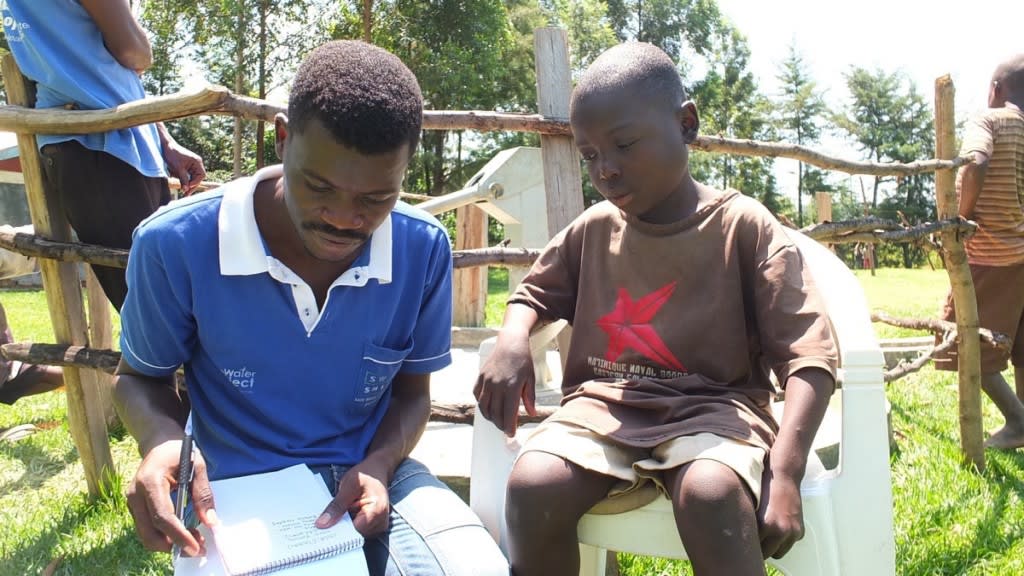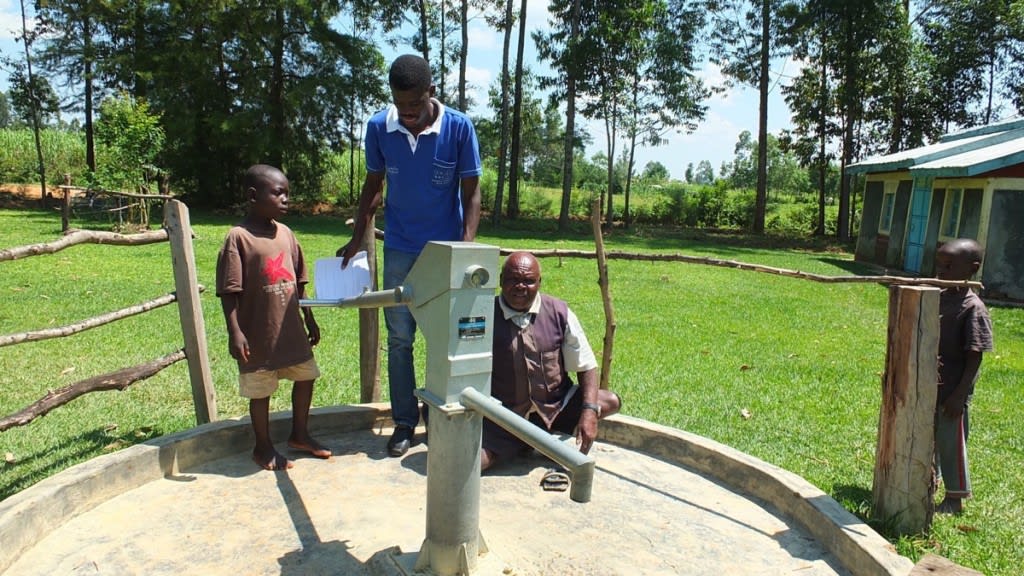This project is a part of our shared program with Safe Water and Sustainable Hygiene Initiative (SAWASHI). Our team is pleased to directly share the below report (edited for clarity, as needed).
Welcome to the Community
Timbito Community is located in Malava, Kakamega. It is home to approximately 300 people from 30 different households. Most families rely on farming as their source of income, and specialize in maize, beans, and other vegetable crops. They take their produce to Butali Market to sell and trade to get what they need.
Water Situation
After years of wasting time and effort in search of clean water, Timbito Community decided to try accessing the water under their own village. They dug down to start a well, reaching a depth of seven meters. The good thing is that they reached a good supply of water. The unfortunate is that the community didn't have the money or resources to finish their well properly. The well has a pad, but is covered with only a tin sheet. There wasn't enough money to buy a pump in order to protect and safely access the water inside.
Without a pump, the community is forced to use rope and a bucket to draw water. The constant dipping of a dirty jerrycan and rope further contaminates the well's water. The main source of contamination is water both from rain and the well itself that washes waste back inside.
Women bring 20-liter jerrycans to fill with that bucket. Once delivered home, the water is separated into different containers. A clay pot is used for drinking water, and the rest of the water meant for cleaning is stored in the same plastic jerrycan.
Because of these conditions, community members often complain of diarrhea and typhoid. Money made at the market is turned right around and used for treatment.
Sanitation Situation
A little more than half of households have a pit latrine made of mud and roofed with iron sheets or grass. The same number of families have bathing rooms dedicated for personal hygiene.
Most homes also have dish racks and clotheslines to dry their things up off the ground. However, no hand-washing stations were found in Timbito Community. Garbage is separated into two pits: one is for compost to be used on the farm, and the other is for general trash that is eventually burned.
Plans: Hygiene and Sanitation Training and Hand-Washing Stations
Our hygiene and sanitation training will address issues described above and many more. We will treat how to properly fetch, treat, and store water. We will train on proper food preparation and storage. Training will emphasize the importance of having and using a latrine, as well as having a place to wash hands and how to do so. We believe that hand-washing is one of the most important factors in preventing sickness, so the two hand-washing stations will be delivered by the project’s completion.
Training will last for two days. Those who attend will form a water user committee that takes responsibility for overseeing and maintaining the rehabilitated well.
Plans: Well Rehabilitation
The community living around the well claims that it doesn't dry up, even during the driest of seasons. This reliability of this source makes it a great candidate for well rehabilitation. The well is lined with bricks. It has a well pad with a hole that is covered with an iron sheet.
The well pad is worn out and cracked. Rehabilitation will begin with the reconstruction of a new well pad. The well will then be flushed, test pumped, and chlorinated. To finish the work, a new AfriDev pump will be bolted to the well pad.
At the time of our visit, we measured the total depth as seven meters and the static water level as five meters.
We believe that with the rehabilitation of this well, the community will have a safe source of clean water. Cases of waterborne disease will decrease, giving community members here more time on their farms and less money wasted on medicines and treatments.

 Protected Dug Well
Protected Dug Well






















